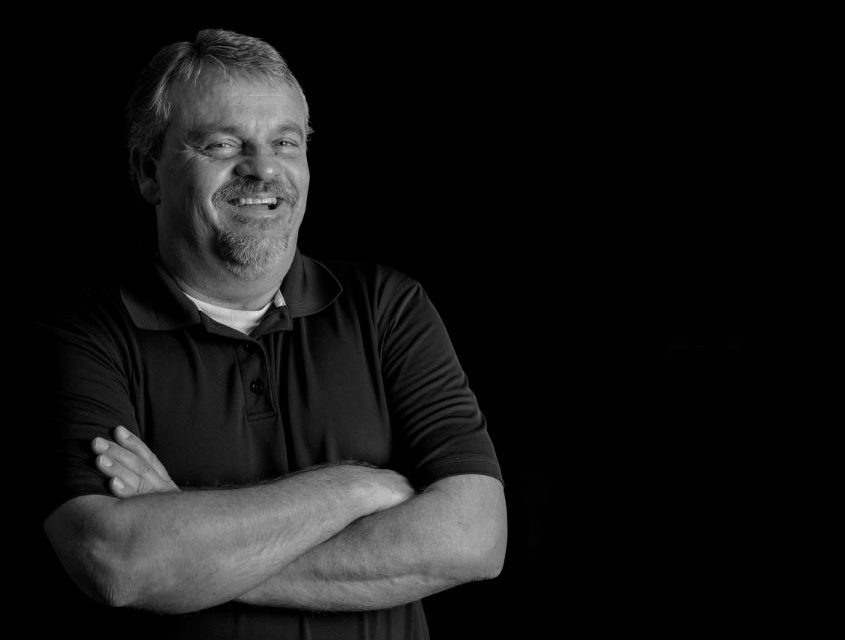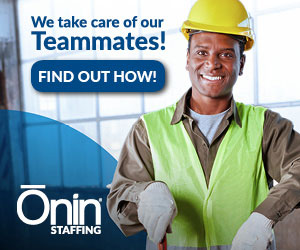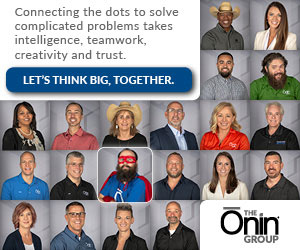Humility — it seems, is rare these days. If you glance through your LinkedIn or other social media feeds, leadership advice is peppered with bravado and swaggering self-promotion. Despite the absence of humility in our current leadership conversations, I have found it to be a defining trait of successful leaders. Recently, I had the great privilege of sitting down with Steven Lee, the General Manager of Yates Services who embodies confident humility like few people I have ever met.
As Ralph Waldo Emerson once said, “A great man is always willing to be little.” Having started his career in one of the most humbling positions, Steven’s commitment to those he serves is a testament to what great leadership in action looks like. I left the interview with a sense of deep wisdom and insight that was practical and yet new. Regardless of how rapidly our industries change, the need for leaders of character will always remain. Without further ado, this is Take 5.
Shane: As leaders, we all have accomplishments — things we’re proud of — what has your greatest accomplishment been so far?
Steven Lee:
I’ve thought about this question. When I look over my life’s work, there are individual things to be proud of, but when I look at my work as a whole, I’m most proud of working my way through the organization from my first, entry-level position 33 years ago. My initial duties were just sweeping and mopping floors, things like that. Like I said, just getting out on my own and starting from the bottom — that’s an accomplishment. Then, working my way through school to get my degree at the same time. When I started, I never thought I would be where I am at today, so I am truly blessed.
We live in a never-ending cycle for continuous improvement. As I go through these steps, I see the accomplishments of the people coming behind me that are better than where I was. My thrills and excitement now come from their wins, their successes and their victories. I see where they’ve improved processes. I see the things they’ve done that I would have never thought of, where they’ve taken it to that next step. That’s where the accomplishment for me is — seeing the success of others.
Shane: That is amazing. I think that’s a good — for lack of a better word — testimony to young folks coming into the workforce today who sometimes expect to start at a place of grandeur or a higher position, but there’s value in the work itself.
Steven Lee:
Yes, because you’re learning the process as you go, and you’re never above anybody — from the entry to the higher levels. You can identify with each level. To me, that’s equality in the workplace.
For those who come after me, I hope they’re better than I am, or I ever will be. That’s my goal. I’m not your finish line. I’m just your starting line. Pass me, please, because you make us better. And then once again, I can revel in their successes.
Shane: You mentioned these other people who are “better than you were when you were at that phase.” Do you attribute part of that to your own coaching, guidance, and ability to let them grow and learn, or is that something that seems to happen organically?
Steven Lee:
As managers, we should be mentors to those who are coming behind us. We should be coaching them, training them, and getting them ready for that next step. We do them an injustice if we don’t. It’s just like raising kids at home. You are trying to prepare them for life. In this case, you’re trying to get the people under you ready to take over the company. Your company is not defined by that person, but by the people. A company must be bigger than any one person.
Shane: Right. It’s interesting you say that because we talk a lot about millennials these days, and they seem to be so hungry for real mentors in their life. I love the fact that you’re likening leading that workforce as a metaphor for parenting. Can you expand on that a little bit?
Steven Lee:
I look at the experiences I’ve had and know the issues I had moving through my jobs. They always say experience is the best teacher, but I don’t want to touch a hot stove just to find out it’s hot. I’d rather somebody just tell me. I don’t need the pain from that experience. If there’s something I can do to prepare you, something that gets you over that hurdle so you don’t have to wrestle with that, then I just made you that much better and helped you avoid that pain and effort.
Shane: That’s actually a good segue to our next question because we do have our successes as leaders. We also have roadblocks, failures, trip-ups, things in our path that makes it difficult sometimes. What’s been your greatest failure, and what did you learn from it?
Steven Lee:
You’ll laugh when I tell you, but my greatest failure is taking eight years to get out of college. Let me give a little backstory.
My parents died when I was young, so I lived with my oldest brother from age seven. He was a perfect role model for me — a great father figure. I lived with him, and at age 16, I moved to another brother’s house. At 18, I said, “You know, it’s just time to go. I’m ready to make it on my own now.”
I got out on my own to start my journey at work, and I was going to school. I soon realized that work was full-time, so school became part-time.
But I had someone challenge me and say, “You’ll never finish school.” I took that challenge head-on and said, “Oh yeah, I will. I’ll show you.”
It took me eight years, so I should have been a doctor by the time I got out, but the experience made me appreciate what I had accomplished.
My journey was also giving me a better story for my future. I was taking the theory from the classroom to the workplace. I like this model in today’s times. We need to start more co-ops, have more internships, and more summer programs for kids.
I had the opportunity to bring in some graduating seniors from a high school who were in a mechatronics program that was all theory. From that theory, I was able to put those graduating seniors in a mechanical shop with technicians and employees that had been there 20-plus years. At first, I was greeted with a response along the lines of, “Steven, are we running a daycare here?”
But the mechanical shop employees become the best teachers and best mentors for those students. The bond that developed between these students and skilled technicians was priceless. Those students were able to take the theory from high school, learn, and apply it at work. Those students went through the system, learned, and then started college. And believe it or not, I think some of the students taught the senior technicians a little, especially in the areas of social media and technology.
We’ve had students that came back each summer as breaks happened. We even brought them in at Christmas just to let them apply the theory they were learning at school. You strengthen knowledge by just adding hands-on experience. For the last four years, I’ve been doing that, and there have been some students who have transitioned into our workforce. They say knowledge is power, but it is really the sharing of knowledge that is power.
When you look at studies about what drives people to work, everybody will say it’s the pay. But at the end of the day, it’s not the pay. It’s the satisfaction of the job. Do you belong? Do you make a difference? Work is hard, and as you’re recruiting people, pay is the motivator. At the end of the day, we live in a society of free agents.
I heard a speech about millennials. They grew up in a free agent society where they were taught to ask, “Where can I get the most money?” Sometimes if you try to go from the entry-level to the top-level, you miss that journey so you can’t appreciate the top, and you don’t learn from the bumps and bruises along the way. It’s just hard to learn some of the small steps when you’re in certain positions.
Shane: Honestly, if that’s your greatest failure, you’re doing pretty good. I think it’s great because you also can relate to these kids. Just as a point of reference, we’re in the South. There’s a pretty big line between those who can just go to college with no issues and those who have to figure other ways out. And these days, there’s a lot of talk, too, in terms of the necessity of college.
Steven Lee:
I was in a meeting last weekend where a mother spoke up and asked, “You know, I was talking to my son. Is there a need for education?” I said, “Listen, there is a path for everybody. There’s a pathway in your career.”
I told her, in Tennessee, they have the Tennessee Promise. As kids come out of high school, they get to attend a community college two years for free, or they can go to trade school free. Your son doesn’t have to have this four-year degree or a master’s to make a great living. Manufacturing is a great place to make a living. In everything that these young people do, they learn along the way. If he wants to get into working with his hands and be in the maintenance field, he should go to a trade school.
Further your education. You can start in entry-level positions and then step-by-step make your way. The more knowledge they can attain, the more they can get whatever they want on this journey.
I have a son who is going through the same thing right now. I told my son, “Go to college.” He did the two years of schooling, and then he was wiring homes.
At that point, I said, “Now I want you to experience a four-year school because you have the rest of your life to work, but this is preparing you for the next stage. When you get out in the world, always know you have that skill, and you have the ability to make a living and provide for your family. In this journey, with all these steps, all I can do is get you started at step one. How many steps you take after that is up to you. How are you preparing each day? One step leads to the next step.”
Shane: Obviously, you lead a lot of people at a pretty high level. What do you feel like you know that other leaders should know?
Steven Lee:
All leaders should know that their greatest asset is the people they lead or work with, and without that team of individuals, they’re not over anything. Always keep that in mind.
People ask, “What keeps you up at night?” The thing that keeps me up now is the people who rely on us. Our employees have families. If I just had 10 employees, and each one of them had four people in their family, 40 people depend on me to make the right decisions. When you have hundreds or thousands of employees, and you start multiplying that by three or four people, there is a multitude of people who depend on you to make the right decisions for the company’s direction, and that will keep you up at night. But it’s good pressure.
Shane: How do you balance that? Obviously, you’re responsible, also, to a company that has production and financial goals, part of which you influence greatly with the decisions you make. How do you approach that?
Steven Lee:
You must take the “me” out of it. There are a lot of people in today’s society that say, “What’s in it for me?” But you have to take the approach of, “What’s best for us?” You can’t make everything work, but collectively, you can make it work for the whole group. You’re not going to solve world hunger in a day, but you are going to solve issues every day, because something new always emerges that must be solved.
The one thing you must learn is how to delegate. Sometimes that’s the hardest thing to do because you want to touch everything, but there comes a point in life where you finally realize that you can’t do everything. You’re just one person, but as a team, we can accomplish many things. I started looking at the big picture rather than getting “in the weeds” every day.
I have skilled labor and entry-level technicians, and they all have the basic needs that we have to accomplish, but their tasks from day-to-day would be different. I have to let their managers manage the day-to-day issues.
Do I help in their decisions daily? Sure. That’s just part of being in the company. You have to know what’s going on. But as far as managing and coming up with every solution, you just need to be there to help facilitate.
Like I mentioned, we have some of the processes that are improvements. We have better defect tracking. When our team tracks this, they’re using more visual management, and they’re trying to make it easier for the employees to see how something is done and why we do things in a specific way. It’s hard for the employee to fail.
We also look at defects, and we institute countermeasures. It’s like the silver bullet. What shoots that problem dead so we can work on something else? For the managers under me who work on these things, some of the ideas that they have and the things they put in place make our lives much easier.
When I talk about continuous improvement, I want to be better tomorrow, which doesn’t mean that we’re bad today. It’s just that, each day, I want to be better. As long as we have that goal, it’s better for all of us. Once again, it’s a mentality of asking, “What’s in it for us?” not, “What’s in it for me?”
Shane: So, 33 years with the company, that’s a long time. You’ve learned a lot along the way. What are you learning right now?
Steven Lee:
Change is inevitable. Things change every day. From where I started 33 years ago, the business is totally different today.
I read a book several years ago called “The Four Disciplines of Execution.” It would be awesome if I could go back in time and tell myself this information. The book says that when you look at work, you should have goals that you’re trying to meet, and you need to stay focused on those goals. But work happens. Your job gets in your way with all the day-to-day chaos. In that book, it refers to this daily phenomenon as a “whirlwind.” We get so caught up in these whirlwinds of activity that we lose our focus, and so we have to drill down and ask, “Hey, what is our goal here?”
Now the question is, how do I stay on-point moving forward? During that time, I looked at a goal of ours, which was to recruit and retain the best employees for our company. To this day, that’s one of my biggest goals.
Now, there’s certainly a whirlwind out there. It’s called 2.4% unemployment in a booming market. People can go anywhere they want to for employment. So, now I have to learn what we can do to change and what can we do to attract people. What can we do better?
I look at some of the things our people do to help with the onboarding process. For instance, the way you try to make people feel part of the team and put them into training areas that give them a taste of what they’re going to do before they’re performing the job. How can we soft-land that person into an area so they succeed? At that point, we can show them the work. Once again, you don’t have to learn by experience on everything.
Those are some of the things I’m learning, but I wish I could tell my younger self, “Hey, don’t get hung up in all those whirlwind activities, because it happens every day. Stay focused, stay aligned, and stay pressing forward.”
To stay in this business for 33 years, you must be a learner. I have never stopped learning.
Shane: You mentioned some things you wish you could go back and tell yourself. It might be the same answer, but looking back on your journey and knowing what you know now, what is one piece of advice you’d go back and tell 25-year-old Steven Lee?
Steven Lee:
Once again, just make sure you stay focused and stay centered. You’re not going to solve world hunger today, but you’re going to make it better for tomorrow. Each step is just a step closer. And as a 25-year-old, when you’re young and ready to tackle the world, you think you can do all these things, but in reality, you need to know there are some limits.
Shane: Yeah. I think that requires a great deal of just being present in the moment. What do you do to help you stay grounded like that?
Steven Lee:
I begin every morning with devotion before I start working. Start your day with that. Tune everything else out, and then say your prayers, or do your meditation, or whatever you do to center yourself. Get your priorities right in life. Start each day with a moment by yourself. I do a devotion and say prayers for my day and for our people, our companies, our clients and our parent companies. It’s the best way to start.
Shane: Obviously, no one really likes to think about what’s next, but if someone were going to come in and be the next GM in your role, what would they have to absolutely possess in order for you to pass the torch to that person?
Steven Lee:
Well, I have to look at our company’s core values, and these core values are something that every leader should possess. The first one is safety, the second is integrity, the third is passion, and the fourth is commitment.
My goal is to hire a person that’s much better than I am. Let me define the four things, the must-haves.
Safety should always be the number one priority for a general manager or any manager. Safety is number one for all of us. We want each person to go home exactly the way they came in that day — safe and sound — because they have a family to return home to.
The integrity means saying what you do and then doing what you say.
I look at passion. I’m a huge hockey fan. When my son came in one day at 12 years old and said, “Dad, I’m done playing football. I’m going to start playing hockey,” I thought, “We’re in the middle of Tennessee, son. Where are we going to play hockey at?”
Little did I know that we had inline hockey, which led to ice hockey, which led to travel hockey, which led to college hockey. And why am I such a fan of hockey? Because it takes every player on that team to succeed. How do they succeed? They all have to have a passion for winning. You can have one or two superstars on the team, but at the end of the day, it takes that whole bench of players to win the game. You have to have that passion.
Then we talk about commitment. I think commitment and ownership go hand-in-hand. We have to own what we’re doing. If we’re working for a client, their issues have to be our issues, and their problems have to be our problems. And if we take it together by working with them, we can accomplish many things.
Shane: Our world has changed pretty dramatically over the last 10 years, and it changed in the previous 10 years too. There is this exponential change happening around us all the time. How has that impacted your field, and how do you see that impacting your field moving forward?
Steven Lee:
Technology is taking us places we’ve never been to before. In the automotive business, compare the car you started driving to your current car. Today when you’re driving, you have an overhead view for backing up. You have cameras. You have sensors that tell you somebody’s beside you, and the automotive industry is advancing toward a car that will drive itself — fully autonomous.
I’m used to my car turning the camera on and beeping when I back into a parking spot now. When I get into my old truck, I have to look back and use my mirrors like I used to when I was a kid. It’s like, “Oh my goodness, I have to use these things now instead of just watching the camera!”
I look at our work processes and how collaborative robots are being developed. It is a small robot that a person can work right beside. These robots are tasked with one thing: undertaking repetitive and tedious work.
Now, people will say automation is trying to take over the workers’ positions. It’s not. Automation allows people to focus strictly on quality and ensures everything is completed with the best quality possible. But, automation also prepares people to become better and allows them to train and skill-up so they can interact with the robots and troubleshoot issues.
That robot does the task exactly the same every time. And if something happens, the person can stop, recalibrate, and get everything back to where it needs to be.
I see these aspects of the future approaching and innovation moving faster. When you attend the trade shows, you can see that automation is now delivering parts at every manufacturing facility. You don’t have to depend on someone. You simply drop the part off on a particular cart, and the automated process takes the part directly to its designated area.
Automation simply makes the process much better, and it lets you know where all of the components are. If I need to know where a part is, guess what? I can see its location on the screen. It’s heading your way, and it will be there in just a second.
We’re entering an exciting time in the manufacturing industry, and it is taking fewer years to see changes happen. When I first began my career, we didn’t have smartphones. Now, I can’t leave home without it. For the hiring process, there are online apps and there is a modern onboarding process. You can send texts to these people to communicate. As I said, the future is bright.
Shane: Your trajectory began with sweeping floors. Now, you’re the general manager of a gigantic facility with thousands of people. What would you say to a person who wants to do the same thing?
Steven Lee:
Jump on in. When I talk to other manufacturing companies, every company is hungry for people who are just willing to raise their hand and say, “Here I am. Put me in the game, coach. I’m ready to play.” I think that might have been a popular song back in my younger days.
All these companies are willing to invest in those people if they’ll just raise their hands and step forward. If you just take that first step, then we want to help you with that journey to your next steps, and your next steps, and your next steps. So don’t be shy — step in.
Shane: Obviously, you had a lot of those next steps you mentioned along the way. How did that work for you?
Steven Lee:
The ability to move forward comes from a strong work ethic. If you’re willing to work, then that will lead you to your next step. I was never afraid to work. Growing up in construction, all of my family members were in the masonry business, and you worked. When my brothers grew up, whatever they made for that day went into the household because I come from a large family. There were six children in my family, and my brothers helped with bricklaying and whatever it took to support the family.
I was always there. No matter what the task was, I was willing to try. I wanted to learn. I wanted to get other skills. So just put yourself in the position to be there. If you’re willing, the companies will notice you.
Now, once again, “That’s not my job. That’s their job,” is a poor attitude to have if you’re trying to go to the next step. There are specialists out there, but in the manufacturing industry, you’ve got to be a specialist for many things. In medicine, your specialty is a body part. We have to specialize in hundreds of different things. The more you can equip yourself to be part of all those things, the better you’re equipped to move forward.
Shane: A lot of times the fear of failure cripples people. What would you say to a person who does want that, but they’re being held back?
Steven Lee:
Don’t let failure or the fear of failure hold you back. What’s the old saying? “If you don’t succeed, try, try again.”
You asked me the question, “What’s your favorite failure?” But, that’s not my only failure in life. I’ve had a lot. And guess what? I’m going to fail tomorrow and the day after. But don’t let that ruin your life. Embrace it and know that overcoming that failure is a success. It’s a win. It’s a driving force behind you to keep you going forward.
Shane: Well, this has been Take5. Thank you, Steven, for taking the time and being here. I learned a lot. Thank you.
Steven Lee:
Thanks for having me. The Ōnin and Yates Services relationship has worked very well for both of our companies through the years, and we have roots of growing together. It’s been a great partnership, so I thank all of you.

Shane Minor
The Onin Group
Shane Minor joined The Ōnin Group in 2016 to lead the newly formed Branding Team and communicate the culture of Ōnin to the world. Prior to Ōnin, Shane spent 16 years in creative, sales and marketing leadership positions for several organizations in the medical, tourism, economic development and outdoors industries.






